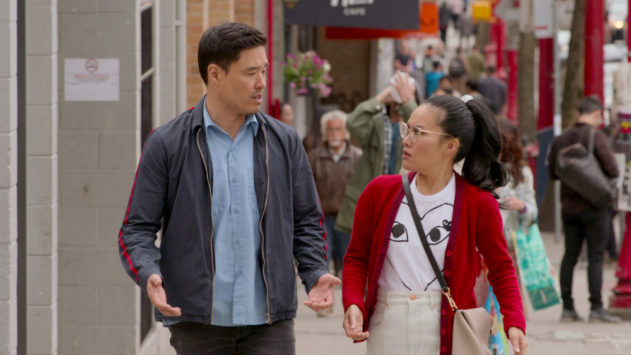We may still have a long way to go, but the fight for representation is worth the struggle. The next generation of Asian Americans deserves to see themselves onscreen and their dreams as possibilities.
Netflix’s Always Be My Maybe is set to premiere on May 31st — a fitting end to Asian Pacific American Heritage Month. The highly-anticipated rom-com stars Ali Wong, who co-wrote and produced the film, and Randall Park from ABC’s “Fresh Off the Boat” series. Recently, another “Fresh Off the Boat” star made headlines under less fortunate circumstances. Page Six reported last week that Constance Wu is the “the most hated person” on the show.
“So upset right now that I’m literally crying,” tweeted the actress on the heels of a “rough day.” I could feel her pain. Had Twitter existed when I was in high school, I might have posted the exact statement after one of my rough days.
Like the day my theater teacher posted the cast list for Les Misérables, and I learned I would not be following in Lea Salonga’s footsteps as Eponine. This was a time before “Hamilton” made colorblind casting cool, and I stood at a crossroads facing a future comprised of “Flower Drum Song,” “The King and I,” or “Miss Saigon,” and decided to choose the path of least resistance. As the rest of my theater friends began preparing monologues and selecting songs for their college auditions, I started researching journalism programs instead.
Last year, when I watched Crazy Rich Asians in the theater, I couldn’t hold back my tears. My heart was both full from seeing myself reflected finally on the big screen and broken that it took more than 30 years for that experience. Constance Wu’s skyrocketed success from “Fresh Off the Boat” to Crazy Rich Asians was what my high school self had once needed to believe in the possibility of a dream come true.
Like many other Asian Americans, I shook my head in disappointment and shame when reading Constance Wu’s social media rant about “Fresh Off the Boat’s” renewal. Though her tweets, Instagram comment, and half-baked apology were cringeworthy, to say the least, her gaffe was symptomatic of a larger epidemic. If Asian American Hollywood success stories like hers weren’t such rare occurrences, perhaps her privileged, ungrateful, and insensitive comments wouldn’t have stung quite so hard.
There is a long, pervasive history of under/misrepresentation of Asians in America dating as far back as the 1870s. In order to condemn the union of Chinese men and White women during this time period, the media was used to emasculate and desexualize Chinese men. Stereotypical depictions, such as Mickey Rooney’s yellow-faced portrayal of Mr. Yunioshi in Breakfast at Tiffany’s, perpetuate the stigma attached to Asian men as being effeminate or non-sexual. Today, there are still very few romantic male leads played by Asian American actors. Always Be My Maybe is helping to break barriers with its casting of Randall Park, Daniel Dae Kim, and Keanu Reeves (who is part Chinese-Hawaiian).
Asian women have struggled with the opposite stereotype. Relationships between Asian females and White males were not forbidden or taboo, but sometimes even encouraged and fetishized by the media. Characters such as Suzie Wong and “Flower Drum Song’s” Linda Lo gave men a new ideal about which to fantasize. Who can forget the infamous “Me love you long time” scene from Full Metal Jacket? While some may argue that the “yellow fever” phenomenon is a so-called “positive stereotype” that encourages integration and assimilation, Asian women are objectified as exotic, submissive, and silent.
Author George Orwell once said, “The people will believe what the media tells them they believe.” His school of thought could explain why, despite the integral part that Asian Americans have played in the United States, they still face a bamboo ceiling in politics, higher education, and leadership. Ali Wong’s Always Be My Maybe character Sasha is referred to in the movie trailer as “Asian Oprah” — an aspirational term inspiring hope for Asian American women and girls.
This is the reason films like Crazy Rich Asians and Always Be My Maybe are so sorely needed. Constance Wu is not the problem. Growing up not seeing your race portrayed positively or accurately in any form of mainstream media is the problem. Hollywood’s whitewashing of Asian American stories and characters is the problem. One #AsianAugust is not enough to compensate for decades of underrepresentation.
On May 31st, I’ll be tuned into Netflix — thrilled to celebrate this new era of Asian American visibility. We may still have a long way to go, but the fight for representation is worth the struggle. The next generation of Asian Americans deserves to see themselves onscreen and their dreams as possibilities. I hope Constance Wu would agree.
Stephanie Drenka is a Korean American writer and photographer from Dallas. She is a Public Voices Fellow with The OpEd Project.
Related Links:

